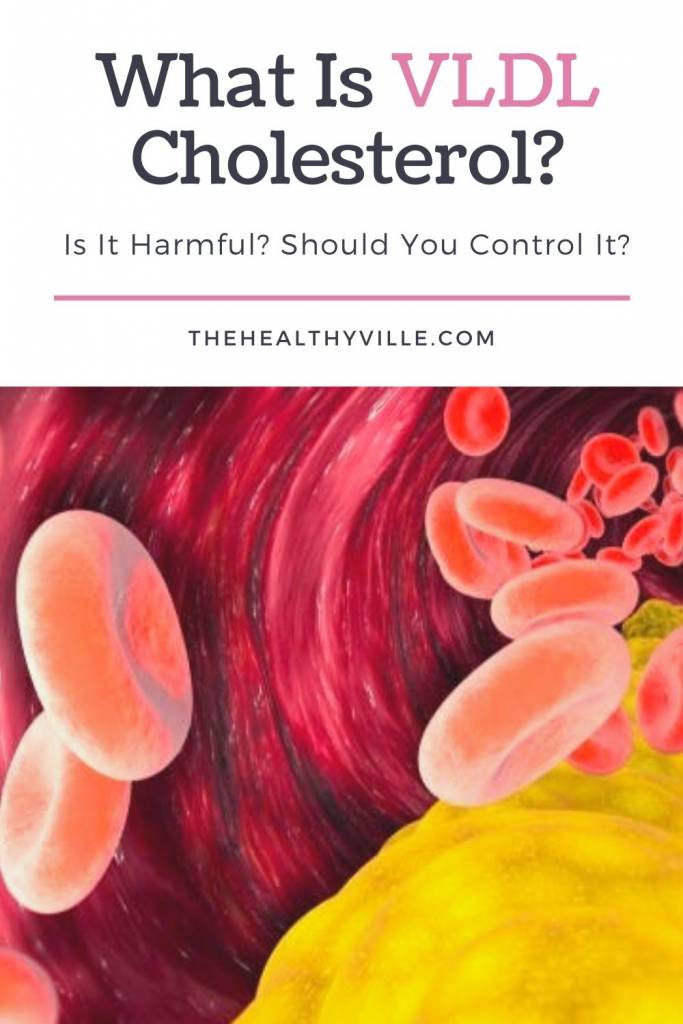What is VLDL cholesterol? It is different than the LDL and HDL cholesterol, and only one of them is indeed harmful. Make sure you control its levels to prevent health problems.
VLDL cholesterol is made up of very low-density lipoproteins that can be harmful to health. It is found in a small proportion with respect to total cholesterol, since it constitutes a fraction of LDL cholesterol.
Experts today do not classify an increase in the concentration of these lipoproteins as dangerous, but rather their oxidation rate. For this reason, it is necessary to carry out a series of strategies with the aim of modulating the lipid profile and reducing the oxidation rate of this lipoprotein.
What is VLDL cholesterol?
Apparently, as stated in an article published in the journal Current Medicinal Chemistry, oxidation of VLDL could increase the risk of atheroma plaque formation, which is harmful and dangerous for cardiovascular health.
In order to reduce the oxidation rate of these lipoproteins, it is necessary to make certain changes at the dietary level. The first of these is to increase the consumption of food from the plant kingdom. Many of these products contain substances of marked antioxidant character.
An example is lycopene from tomatoes. This nutrient reduces the formation of free radicals and also the oxidation rate of the lipoproteins that make up total cholesterol.
Some foods help modulate the lipid profile
On the other hand, there are products in the diet that are capable of modulating the lipid profile in a positive way. These foods manage to increase the proportion of HDL cholesterol and reduce LDL and VLDL, accordingly.
Mono and polyunsaturated fatty acids fulfill this function. You can find them in vegetable oils, blue fish and nuts, among others.
Another class of nutrients, like fiber, are also capable of influencing cholesterol levels. It has even been linked to its relationship with cardiovascular risk reduction. One of the hypotheses that are alleged to support this claim is its ability to positively influence the reduction of VLDL lipoprotein oxidation.
Restrict food to prevent oxidation of VLDL
Just as there are foods in the diet that are capable of modulating the lipid profile and reducing the oxidation rate, there are others that have the opposite effect. This is the case of processed products, rich in trans fats and simple sugars.
Trans lipids, originated from subjecting oils to high temperatures, have inflammatory effects and promote oxidation. There are other lipids with inflammatory properties, such as omega 6 fatty acids. However, these are essential in human nutrition. It is only necessary to guarantee its balance ratio with respect to omega 3 acids.
Other substances like alcohol help promote the effects of oxidation and increase cardiovascular risk. For this reason, it is necessary to restrict and, if possible, eliminate its consumption. Failing that, it is much better to use sparkling water, for example.
Cholesterol can be harmful
Although total cholesterol has traditionally been linked to cardiovascular risk, it has now been shown that this is not the case.
It is the oxidation of a small fraction of LDL cholesterol, VLDL lipoproteins, that could be responsible for the increased risk of atheroma plaque formation.
To minimize this situation, it is essential to carry out certain dietary strategies. Many of them involve increasing the consumption of vegetables, characterized by containing antioxidant vitamins and phytonutrients.
On the other hand, it is beneficial to increase the intake of omega 3 fatty acids, since they are capable of positively modulating the lipid profile of the individual.
Finally, it is worth noting the need to reduce the intake of all those foods that can promote oxidation and inflammatory processes. An example is the processed ones, rich in trans fatty acids and additives.
Healthy eating always prioritizes fresh foods over industrial ones. Another characteristic case is that of alcohol. This substance is able to increase cardiovascular risk and worsen health-related markers. You should avoid this.
Don’t forget to SHARE what is VLDL cholesterol with your friends and family on your social networks!

